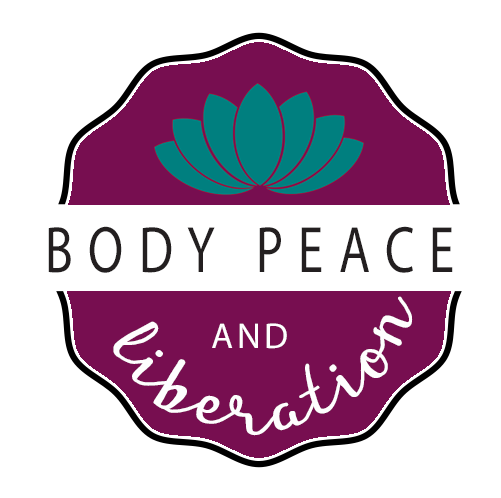Books
From Anti-Diet by Christy Harrison (page 187)
“It’s also normal to be sad when you realize everything diet culture stole from you. Indeed, many people go through a mourning process when they wake up to that. ‘I was mad as hell for a while, and I was really sad, and I was depressed for a period of time,’ says Kathleen Bishop, a clinical social worker who went through her own recovery from diet culture after being stuck in it for about forty years. ‘I had all the stages of grief, not in any particular order, going back and forth,’ she says. In fact, sadness and anger aren’t as distinct as our society makes them out to be. They’re two sides of the same coin; it’s just that we’re socialized in our society to show only one side.”
Podcasts
MindBodyRadio: Daily Show with Kathleen Bishop
In her private practice Kathleen Bishop treats a variety of conditions, and is passionate about helping people with eating and body image concerns. Kathleen has worked in public service for 16 years, starting with family work, and currently contracts with local agencies to provide clinical supervision and training.
The Body Image Podcast S3 Ep. 3: Drunkorexia, Fatphobia & Finding Freedom from Diet Culture with Kathleen Bishop
Kathleen Bishop, LCSW, Certified Intuitive Eating Counselor and founder of Body Peace and Liberation, joins The Body Image Podcast for a direct yet compassion conversation on drunkorexia, fatphobia, and finding freedom from diet culture. Inside the episode, Kathleen offers practical, doable, and thought-provoking advice to help you make peace with food and your body.
Food Psych #158: How to Heal from Weight Stigma with Kathleen Bishop
Health at Every Size therapist Kathleen Bishop shares how the trauma of dieting gets passed from one generation to the next, how to mourn the loss of the life that diet culture stole from you, ways to start recovering from internalized weight stigma, the connection between substance use disorders and eating disorders, and so much more!
Life Unrestricted #007: Kathleen A. Bishop – There’s a life beyond internalized fat-phobia
In this episode of the Life Unrestricted podcast, Kathleen Bishop, LCSW talks about … all of it:
– Why a person’s size never tells us anything about their health and the dangers of equating “thin” to “healthy”
– How we can learn to trust ourselves and our bodies again
– How to heal negative body image, let go of disordered eating, overcome food fears and end weight-obsession… And so much more!
Articles
From 4 Women on Dealing With Negative Body Image—and Learning to Love Themselves (Health Magazine, Sept 2019) by Brittany Burke
“Traditionally in the United States, there has been just one body-type ideal—and that ideal is thin, explains Kathleen Bishop, a licensed clinical social worker and founder of Body Peace and Liberation in San Jose, California…‘Body peace is more about coexisting with your body and viewing it as more functional than aesthetic,’ says Bishop. If body positivity is the finish line, body peace is the marathon course—it’s a process, and one that has a lot of twists and turns.”
From Learn to love your food again (Headspace) by Jennifer Rollin
"Kathleen, LCSW, a therapist, says, “When you are present while you are eating, your brain actually registers that you have eaten by experiencing the texture and taste of your food. When you eat mindlessly, your brain does not register the experience leaving you feeling unsatisfied. Think of driving to work mindlessly and arriving at work with no recollection of the drive.”
From Diversity Is A Good Thing: 80+ Eating Disorder & Body Image Providers & Activists by Maria Paredes and Melissa Carmona
“As a Social Worker, I am concerned about the lack of diversity I see in the treatment of eating disorders. It's not that there is not diversity, it's that professionals and activists who are in marginalized categories are not included in the conversation. They are not seen. That needs to change.”








